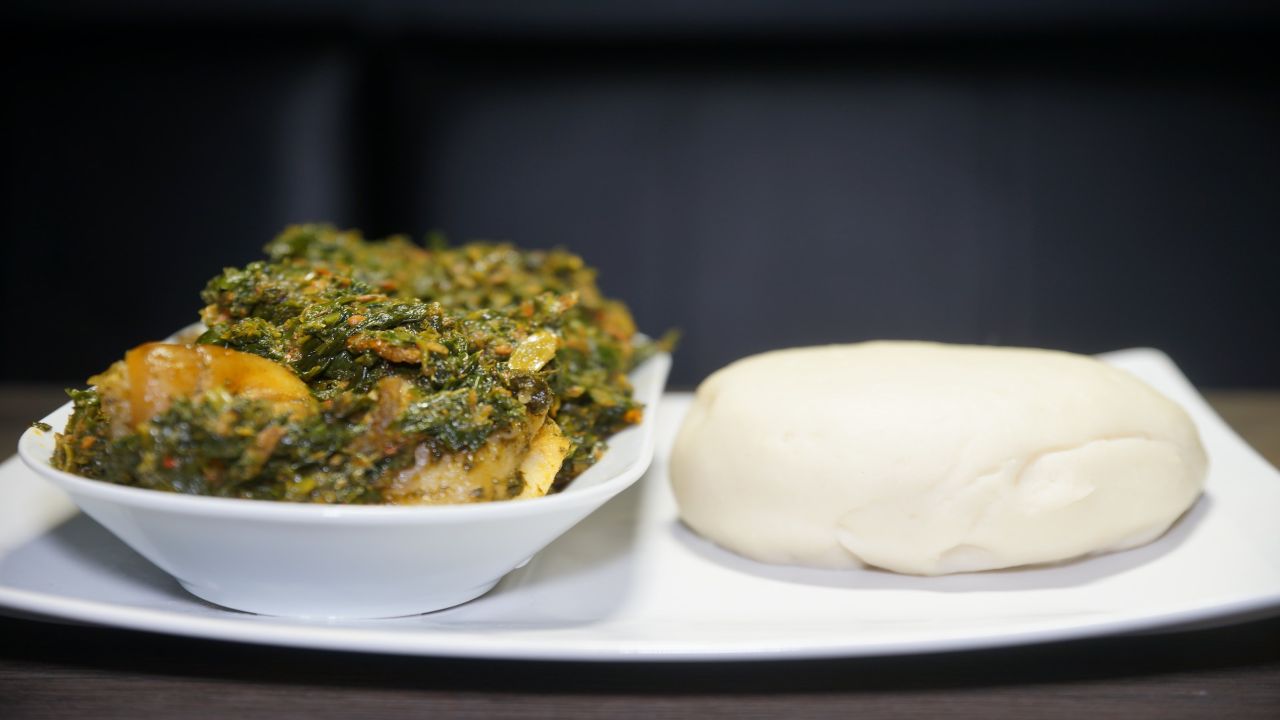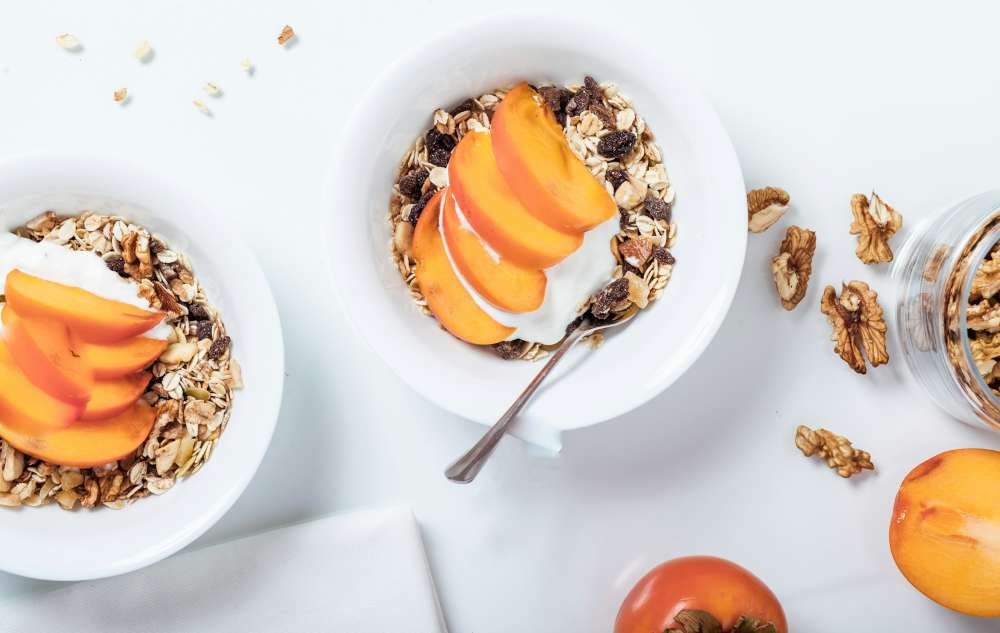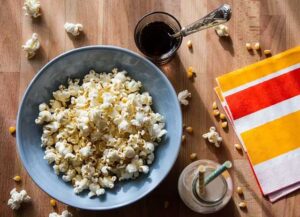Get In Touch
Info@fitfaysal.com

Are you trying to increase your fiber intake? Well, look no further.
This article covers Nigerian high-fiber foods; some of them are foods you already eat, and you might be pleasantly surprised by how much fiber they contain.
Fiber, often overlooked yet highly impactful, plays a key role in our well-being.
It not only aids in digestion but also supports heart health, regulates blood sugar, and assists in weight loss and management.
Getting enough fiber can seem difficult because most people associate it with just vegetables.
But are you aware that some of our foods, from bean porridge to snacks like popcorn, contain fiber?
Read on to find out more high-fiber foods that you’ll want to eat.
I’ll cut it short: fiber is a type of carbohydrate that the body doesn’t absorb; this helps in many ways, which I will cover below.
There are two main types, Soluble and Insoluble.
Soluble fiber dissolves in water and forms a gel-like liquid; this liquid slows the rate of both digestion and absorption of glucose in the body.
How does this help you?
Insoluble fiber does not dissolve in water and remains unchanged. It is not digested, which means it adds no calories and also bulks up the stool.
How does this help you?
It is recommended that men over 18 aim to consume 30 grams of fiber per day and 25 grams for women.
Most of us consume less than half of this.

As you know by now, fiber is a great nutrient for many reasons, so let’s cover the foods high in fiber that can be found in Nigeria.
These foods are a good addition to weight-loss meal plans because they get you feeling full and keep you satiated for a long time.
I’ve listed and arranged them in the order of highest fiber content to lowest, so let’s dive in:
Besides its remarkable 27g of fiber per 100g, tigernut is also rich in minerals like iron, magnesium, and phosphorus.
This snack offers a natural sweetness and a satisfying crunch, making it a great option for both snacking and crafting the nutritious and satisfying tigernut drink.
In addition to their 17 grams of fiber, chickpeas are a powerhouse of plant-based protein, providing essential amino acids.
Their versatility shines through in dishes like hummus, stews, and salads, contributing not only to fiber intake but also to your overall nutritional balance.
With 16 grams of fiber per 100 grams, beans stand out for their high fiber, protein, and magnesium content.
This nutrient-dense legume, which has stood its ground in our Nigerian cuisine, offers a hearty and nutritious base for various dishes, promoting satiety and supporting muscle health.

Offering 13 grams of fiber, popcorn is a whole-grain snack rich in antioxidants.
When prepared mindfully, avoiding excessive additives like too much sugar and butter, it becomes a guilt-free pleasure, providing dietary fiber and promoting digestive health.
Almonds are a crunchy source of protein, healthy fats, and, of course, fiber. They are perfect for snacking or adding a nutty crunch of fiber to your desserts.
Did you know that almonds are the seeds of a fruit? Except you can’t eat the actual fruit.
Providing 11g of fiber, dark chocolate, in moderation, delivers a sweet treat coupled with antioxidants.
Its flavonoid content supports heart health, making it a surprisingly high fiber addition to a well-rounded diet.
However, I wouldn’t suggest you go about snacking on these if you’re trying to lose or maintain weight.
With 10 grams of fiber found in a single avocado, they rank surprisingly high in the fiber tier list. Avocados offer monounsaturated fats, potassium, and vitamins.
Their creamy texture adds a smooth, buttery element to salads, sandwiches, and smoothies, providing not only fiber but also essential nutrients for overall health.
Boasting 9 grams of fiber per 100 grams, oats are a fiber-rich breakfast meal option that will keep you feeling full.
They are a source of beta-glucans, promoting heart health, and their soluble fiber content aids in maintaining stable blood sugar levels, making them an ideal breakfast choice.
Oats are my go-to when I’m trying to lose weight because they really keep me satiated.
Beyond its 9 grams of fiber per 100 grams, coconut provides medium-chain triglycerides (MCTs) and essential minerals.
From coconut oil to coconut milk to just eating it plain, coconuts enhance both savory and sweet dishes while giving you the fiber required, which contributes to better digestive health.
Cocoyam, one of our staples, is mostly known for being carb-heavy, but this root vegetable is also high in fiber.
Cocoyam complements soups and stews while providing a substantial source of fiber and energy.
With a decent 5g of fiber per fruit, guava is a nutrient-dense tropical fruit.
Beyond its fiber content, guava delivers an abundance of vitamin C, antioxidants, and dietary minerals, making it a flavorful and health-enhancing addition to your diet.
Did you know guava is called the super fruit because it has four times as much vitamin C as an orange, more potassium than bananas, and four times as much fibre as a pineapple?
That’s a pretty sweet deal.
With 5 grams of fiber per 100 grams, green peas are a small but mighty source of plant-based protein and essential nutrients.
Their color and sweet taste make them a complementary addition to various dishes, boosting fiber and protein intake.
Paired with brown rice or whole-wheat pasta, you get a super-fiber meal.
Bitter kola holds cultural significance here in Nigeria, and beyond that, it also provides 4 grams of fiber per 100 grams along with bioactive compounds.
Traditionally valued for its potential health benefits, bitter kola adds depth to both cultural practices and dietary fiber intake.

Offering 3.9 grams of fiber per 100 grams, whole-wheat pasta is a healthier alternative to the refined, white options we eat every day.
It provides sustained energy, additional vitamins, and minerals, making it an excellent choice for maintaining a balanced diet while enjoying your classic pasta dishes.
Check out: 11 Nigerian Foods High in Probiotics (How do They Help You?)
With 3.9g of fiber, semolina not only satisfies your native tongue but also offers essential nutrients. They don’t contain much fiber on their own; however, they pair well with various soups, contributing to both flavor and nutritional value.
That hot, steaming semo served with your favorite soup isn’t just a satisfying meal; it’s a decent source of fiber, which explains why you feel so full after eating it.
Sweet potatoes have been praised for being a superfood in the fitness space. They aren’t as fiber rich as most of the foods mentioned here; however, they are still a good source of fiber, vitamins, and complex carbohydrates.
Sweet potatoes are not only a tasty addition to meals but are also a nutritional powerhouse that will surely keep you feeling full.
To top that all up, they are a low-calorie food, making them a perfect addition to a weight-loss meal plan.
Pawpaw is a hit or miss for people, but regardless, they offer 2.6 grams of fiber per 100 grams (pretty low when compared to the others), along with vitamins and antioxidants.
This fruit adds a unique texture and nutritional diversity to your diet.
On their own, they would not cut it as a “high-fiber food.” However, when paired with other fruits like guava and apples, you get a high-fiber fruit bowl!
Providing 2.4g of fiber, apples are more than just a snack. They haven’t gotten all their praise over the years for nothing.
With over 2,500 varieties, apples offer a range of flavors and nutritional profiles, contributing to digestive health and overall well-being.
With 2.4g of fiber, corn brings more than just taste and texture. Whether enjoyed roasted or boiled, corn adds a touch of fiber to your diet, complementing its delightful taste and filling you up.
With 2.1g of fiber, Ube combines a distinctive flavor with a healthy dose of dietary fiber. As a local and seasonal fruit, it adds both cultural significance and nutritional value to your tastebuds.
And there you have it—the Nigerian foods high in fiber.
Nigeria offers a rich array of high-fiber foods that can enhance your well-being in several ways.
Fiber, often underestimated, plays a pivotal role in the digestive system, heart health, blood sugar regulation, and weight management.
Some of these fiber-rich gems, such as tiger nuts, chickpeas, beans, and avocados, are staples in our diet.
Even familiar snacks like popcorn and almonds can contribute to your fiber intake.
By adding these high-fiber Nigerian foods to your diet, you can enjoy a well-rounded and nutritious eating experience.